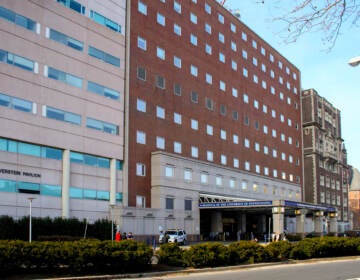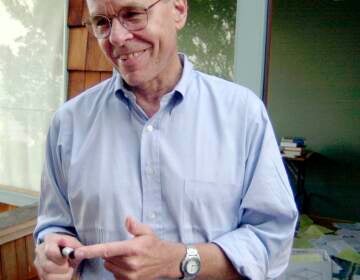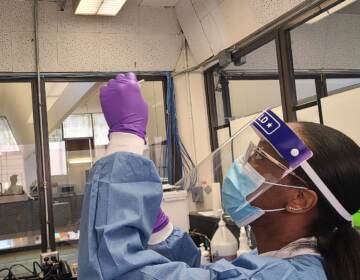Decades of ‘resilience’ led to Penn Medicine researchers’ Nobel Prize
Katalin Karikó Ph.D. and Dr. Drew Weisman Ph.D. won the 2023 Nobel Prize in Medicine and their colleagues raised a glass to toast it in the hospital lobby.
Listen 1:30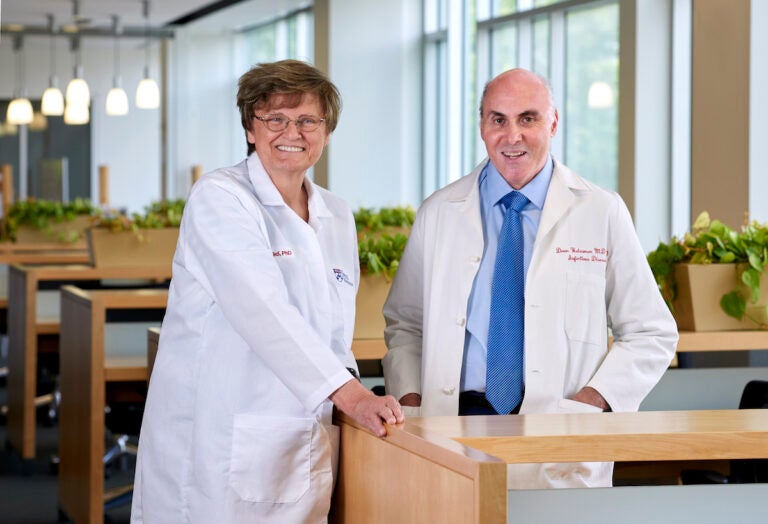
Closeup of Penn Medicine researchers Katalin Karikó Ph.D. and Dr. Drew Weisman Ph.D. in a Penn Medicine lab. (Peggy Peterson Photography courtesy Penn Medicine)
From Philly and the Pa. suburbs to South Jersey and Delaware, what would you like WHYY News to cover? Let us know!
Dozens of Penn Medicine employees, students, faculty and administrators all raised a glass to toast the newest Nobel Prize winners at the University of Pennsylvania on Monday inside the University City hospital lobby.
Penn Medicine researchers Katalin Karikó Ph.D. and Dr. Drew Weisman Ph.D. are being recognized on an international stage after winning the 2023 Nobel Prize in Medicine.
The pair’s research on mRNA technology contributed to the COVID-19 vaccine research that enabled people around the globe to get critical medicine during a pandemic.
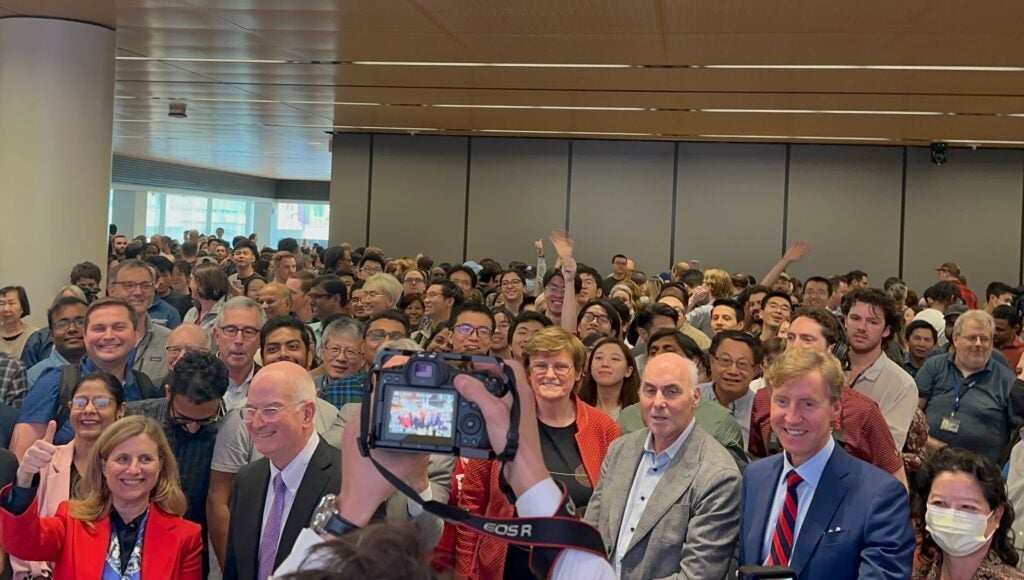
Their research is estimated to have saved millions of lives and prevented COVID-19 hospitalizations. Pharmaceutical giants Moderna and Pfizer’s vaccines relied on mRNA technology.
The duo’s work also forms the basis for newly emerging treatments for cancer and autoimmune diseases.
The COVID-19 vaccines manufactured by Pfizer/BioNTech and Moderna use licenses of University of Pennsylvania technology. Both Penn Medicine researchers “have received and may continue to receive significant financial benefits in the future based on the sale of these products.”
For example, BioNTech helps fund Weissman’s research for future infectious disease vaccines, according to the university.
But it wasn’t an easy path to success.
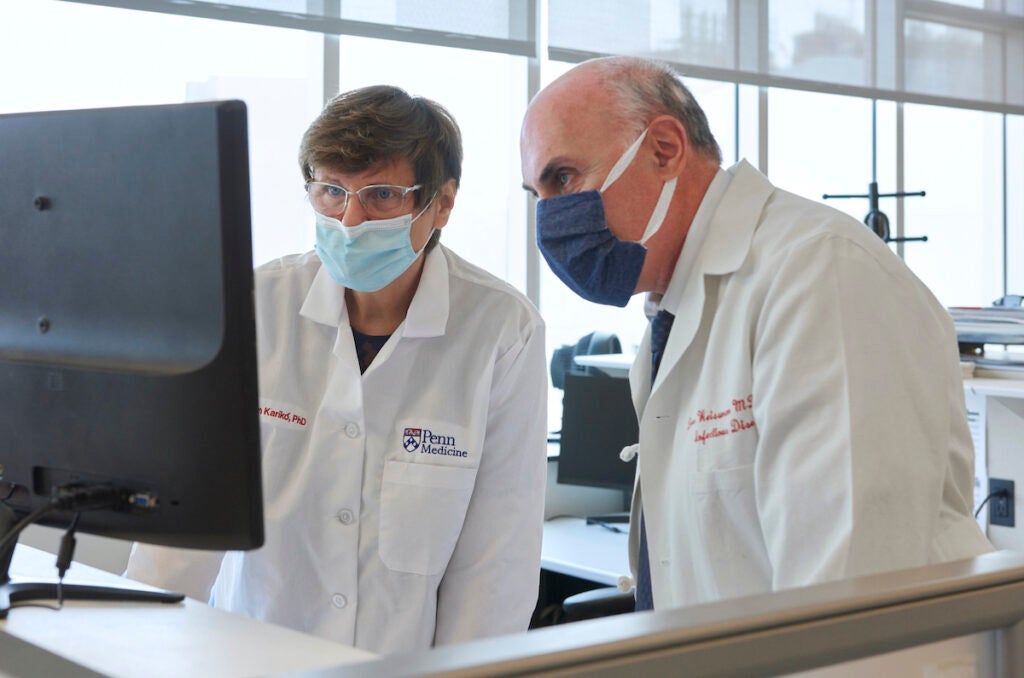
For decades, it was difficult to get attention for mRNA research — let alone funding.
“We worked side by side the entire time because we couldn’t get funding,” said Weissman, who is now the Roberts Family Professor of Vaccine Research at the Perelman School of Medicine. “We couldn’t get publications. We couldn’t get people to really notice RNA as something interesting.”
Karikó, a Hungarian biochemist known as Kati, is an adjunct professor of Neurosurgery at Penn’s Perelman School of Medicine. Karikó is also a professor at the University of Szeged in Hungary.
Karikó said her ability to be resilient as an immigrant helped her move forward with research even when it was unpopular. She told a crowd of supporters to do the same.

“Don’t give up that easily. I can see that many of you may be immigrants just like I am and it’s a little bit more difficult but we are more resilient,” she said. “That’s the same for the women here.”
There are 27 other Nobel laureates affiliated with the University of Pennsylvania including nine who have won the Nobel Prize in Medicine.
CEO of University of Pennsylvania Health System Kevin Mahoney told the Penn researchers that the medical community was grateful for their research efforts but also himself personally.
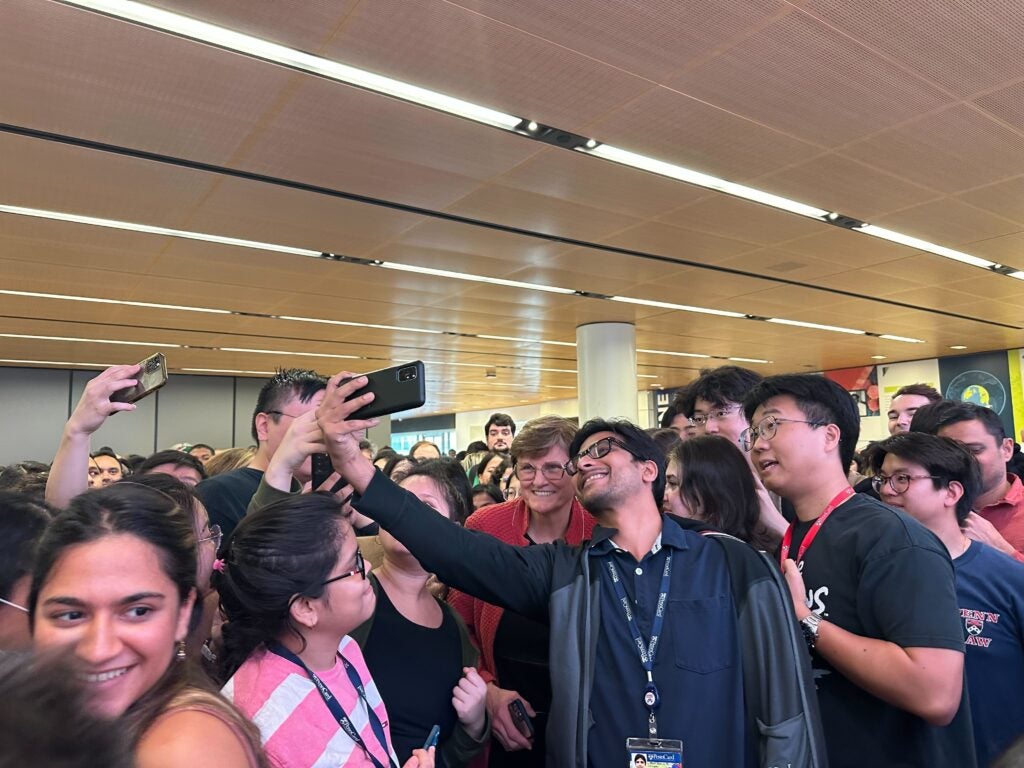
“Thank you for leading us. Thank you for saving us. Thank you for making it possible for me to hug my grandbaby,” Mahoney said.
It was a friendly conversation by the copier that sparked a working relationship between the researchers in the 1990s. By 2005, a key discovery was published that suggested mRNA “could be altered and delivered effectively into the body to activate the body’s protective immune system.”
Kariko shared the story in front of the crowd on Monday.
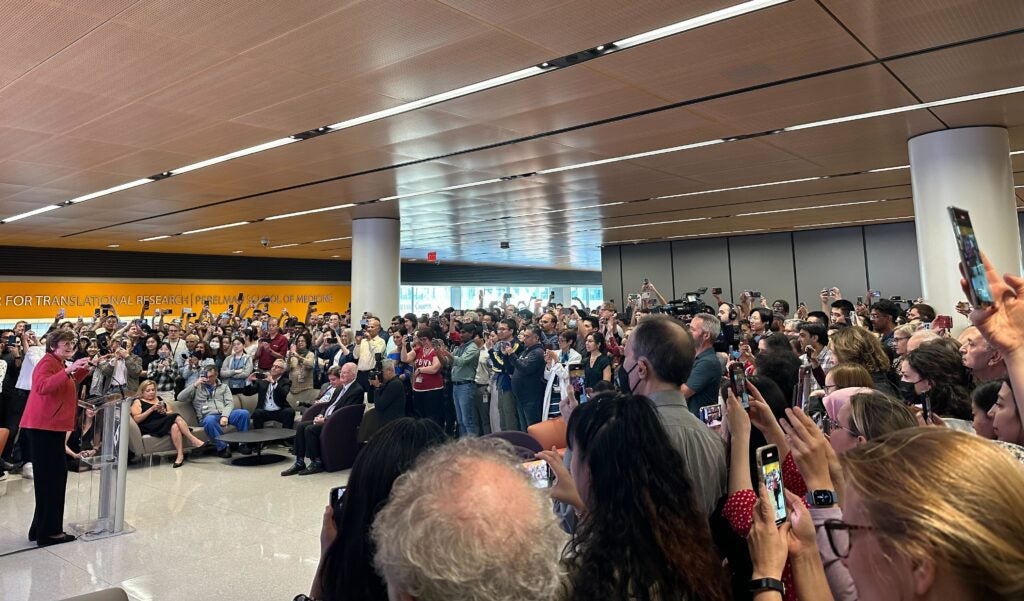
“I bragged that I could do RNA and Drew was interested in vaccines,” she said. “And that’s how our collaboration started. We never worked in the same building. We were in different building [different] departments. But we collaborated and had fun.”
Except that fun has contributed to a significant step in medical research. It’s unclear what’s next for the researchers besides a bit of scientific stardom.

Get daily updates from WHYY News!
WHYY is your source for fact-based, in-depth journalism and information. As a nonprofit organization, we rely on financial support from readers like you. Please give today.





![CoronavirusPandemic_1024x512[1]](https://whyy.org/wp-content/uploads/2020/03/CoronavirusPandemic_1024x5121-300x150.jpg)
